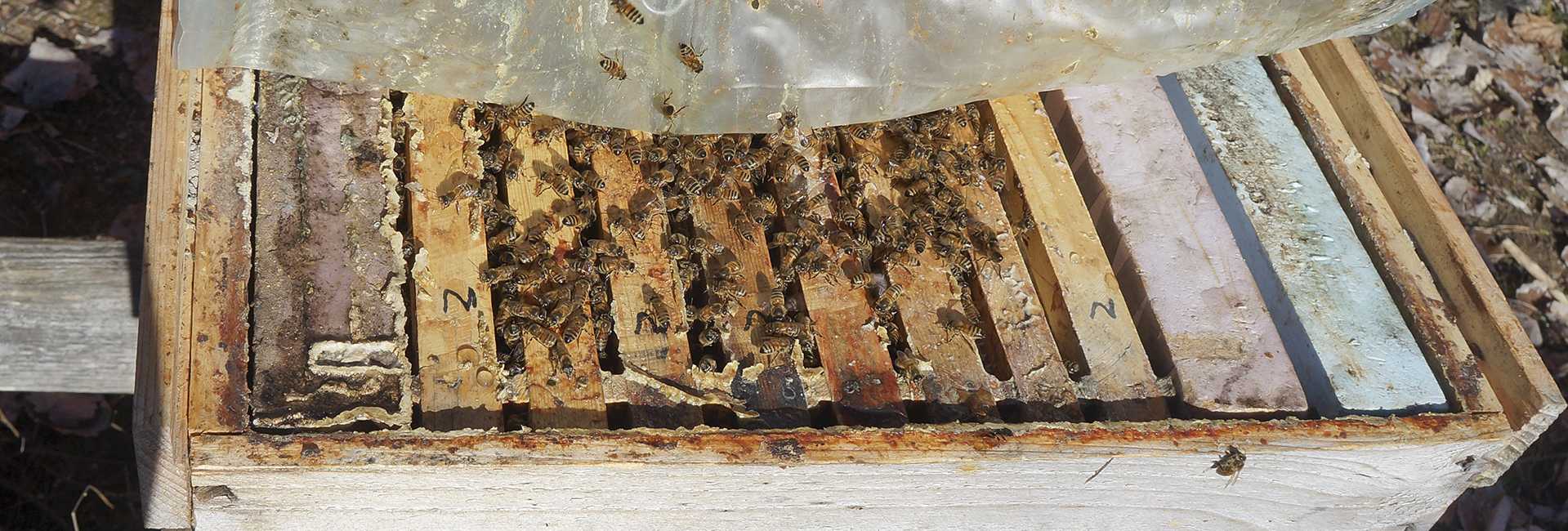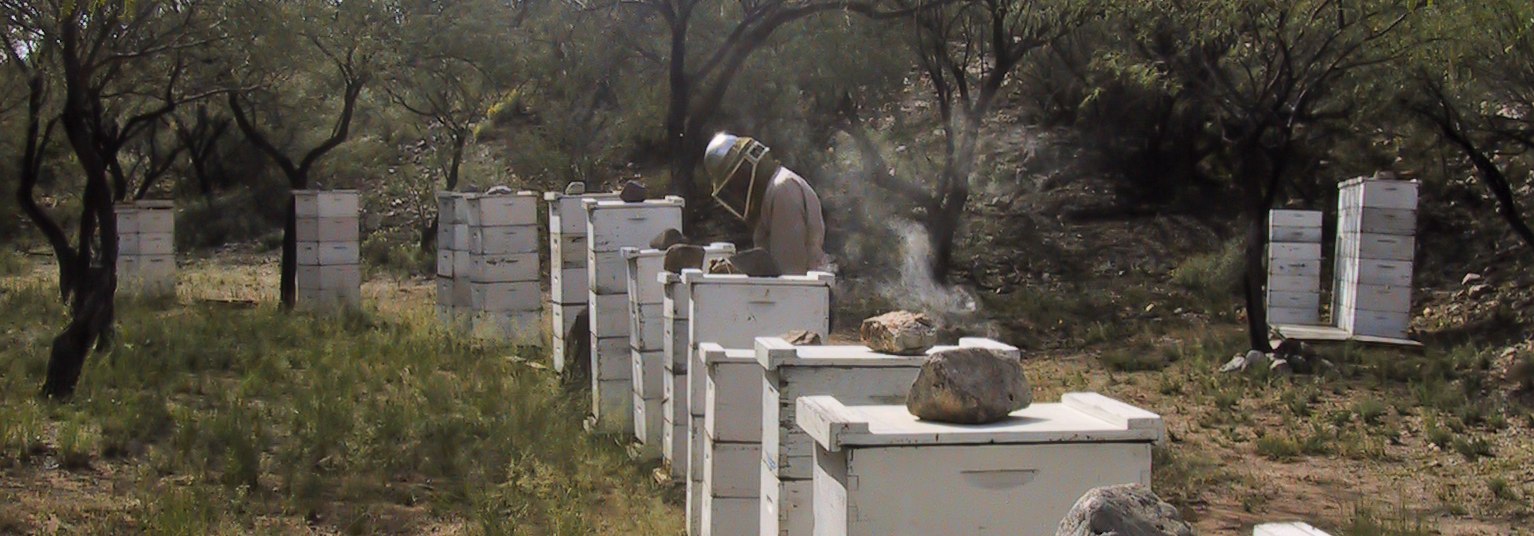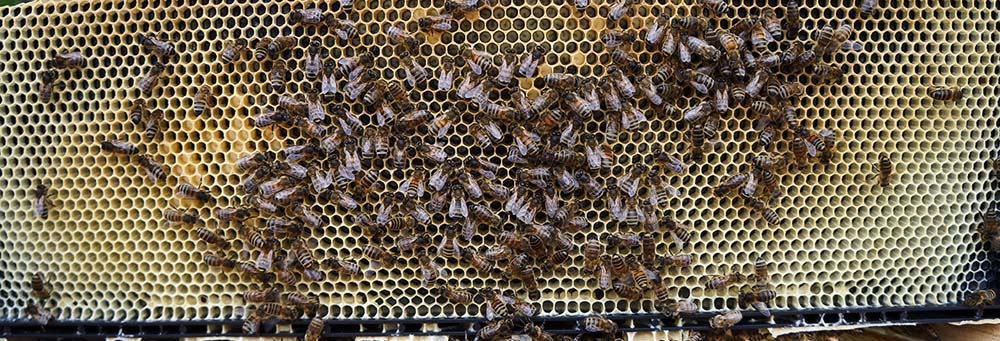Up till now anyway, this colony of bees (and their ancestors forming this colony’s ancestor colonies) that has lived in a wall since several colony generations, has never been treated with any kind of chemicals ever, against Varroa mites or
Treatment free feral bees




